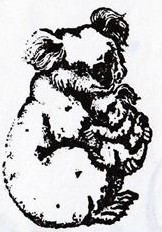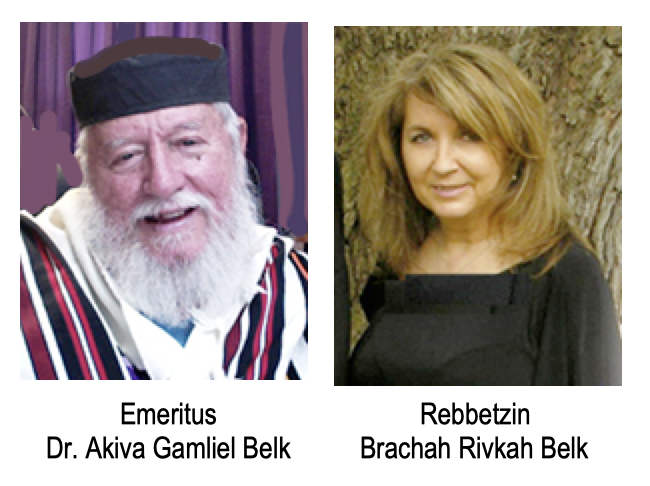Mussar Yirat HaShem/Fear God 3
Yirat HaShem
Part 2
Yirat HaShem, means the fear of doing anything that will cause me to become separated from the Divine. Both the Divine within and the Divine without.
Devarim 6:13
You shall fear the L-rd, your G-d, worship Him, and swear by His name.
אֶת יְהֹוָה אֱלֹהֶיךָ תִּירָא וְאֹתוֹ תַעֲבֹד וּבִשְׁמוֹ תִּשָּׁבֵעַ
Fear – ירָא
Yiro ( Yud – Resh – Aleph )
Fear; call to constant attention
וַיֹּאמֶר אַל תִּשְׁלַח יָדְךָ אֶל הַנַּעַר וְאַל תַּעַשׂ לוֹ מְאוּמָה כִּי עַתָּה יָדַעְתִּי כִּי יְרֵא אֱלֹהִים אַתָּה וְלֹא חָשַׂכְתָּ אֶת בִּנְךָ אֶת יְחִידְךָ מִמֶּנִּי: בראשית, כב:יב
And HE said, Lay not your hand upon the lad, nor do anything to him; for now I know that you Yirat (fear) G-d, seeing that you did not withhold your son, your only son from me: Bereishit (Genesis) 22:12
מִי בָכֶם יְרֵא יְהֹוָה שֹׁמֵעַ בְּקוֹל עַבְדּוֹ אֲשֶׁר הָלַךְ חֲשֵׁכִים וְאֵין נֹגַהּ לוֹ יִבְטַח בְּשֵׁם יְהֹוָה וְיִשָּׁעֵן בֵּאלֹהָיו: ישעיה, נ:י
Who among you is G-d-Yira (fearing), who hearkens to the voice of His servant, who went in darkness and who has no light, let him trust in the NAME of the L-rd and Lean on his G-d. Isaiah, 50:1
מִי זֶה הָאִישׁ יְרֵא יְהֹוָה יוֹרֶנּוּ בְּדֶרֶךְ יִבְחָר: תהילים, כה:יב
Who is the man who Yira (fears) the L-rd? HIM shall HE teach in the way that he should choose: Psalms, 25:12
By this injunction we are commanded to believe in the Yirat (Fear) and Awe of G-d.
The Hebrew word yiro means both to fear and to see. The essential choice of life is to open our eyes to available opportunities, and to fear the consequences of avoiding that reality.
Fear is like any other emotion — there are both positive and negative aspects. Negative fear is debilitating. Positive fear is exhilarating.
Making the right choice is a constant human struggle. We have an inclination to take the easy way out, and to ignore the coming consequences. Fear of consequences can be a great motivator in getting the job done quickly and efficiently.
G- d stands over him, [though] the entire earth is full of His Glory, He looks at him, and inspects his reins and his heart, [to see] if he is serving Him as is fitting.
Therefore, one must serve Him with Awe and Yirat (fear), as one stands before a king. One should think deeply about this [concept]. The Tree of Life Rabbi Shalom DovBer Schneersohn of Lubavitch Page 98
Fear of G-d gives you full freedom.
Nothing will stand in your way. You just push right ahead. You’re free from all other fears.
You have turned yourself into a pure conduit for the Will of G-d.
Yirat (Fear) of G-d is the means to acquire all other Mitzvot, and is the key to everything we want to accomplish in this world.
This is also the fifth Constant Commandment, it is the mandate to Yirat HaShem (Fear G-d), or to constantly stand in Awe of Him. Fear of G-d is the emotion that motivates the fulfillment of all the 365 prohibitive Commandments of Ha Torah.
Fear of G-d does not refer to the fear of punishment. Although useful to fall back on as a means of keeping ourselves from transgressing against G-d’s Commandments in times of spiritual immaturity, when unable to arouse any deeper motivation, fear of punishment is not really considered serving G-d. For if we Fulfill G-d’s Commandments in order to avoid punishment, we are not fulfilling them for G-d’s Sake, but rather for our own interest.
True fear of G-d is founded on the fear of severing our bond of Love with Him, our Covenant of Betrothal to Him. Thus, Fear of G-d flows naturally out of the previous Commandment to Love HaShem G-d. If we truly Love G-d, we will fear doing anything that might separate us from Him. This fear keeps our consciousness focused on G-d and prevents us from doing anything prohibited by Torah.
At first this fear is not even conscious; it is merely a natural component of our Love for G-d. Eventually, however, after we have integrated the Love of G-d into our daily life, we may begin to sense the initial passion waning, and this is when our fear of losing our emotional Connection to G-d surfaces. Since we recognize that our Love of G-d is a product of our awareness of His Unity, this fear inspires us to seek newer insights in our understanding of G-d. Living in Divine Space Rabbi Yitzchak Ginsburgh Page 59-60
Fear works together with Love, the two joining to become the two wings of the soul that constantly elevate all of our good deeds, prayers, and studies.
The day corresponding to the sefirah of gevurah ( might ), the consciousness of the left, is the Second Day of Creation, on which G-d Severed the lower waters from the higher waters by means of the firmament. For the first time, created reality experienced existential distance from G-d, the Creator. The sages teach that to this very day the lower waters cry: we, too, want to be Close to G-d [ as are the higher waters]. Fearing Separation and longing to be Close to G-d, Creation cries out with all its might ( gevurah ) to its Creator. . Living in Divine Space Rabbi Yitzchak Ginsburgh Page 60-61
Just as Love exists at three levels of Ascent to G-d…
- with all your heart
- with all your soul
- with all your might
So does its companion, Fear, exists at three levels:
- The fear that our bond of Love with G-d be severed corresponds to Loving G-d with all your heart.
- The fear to approach G-d too Closely, lest one become annihilated in Divine Ecstasy, corresponds to Loving G-d with all your soul – even if He takes your soul.
- Shamefaced fear is the experience of standing in the Presence of the Infinite One, feeling that He is ALL and ALL is HE, and asking, Who am I? This corresponds to the level of with all your might, for here, as ALL is G-D, All is a manifestation of perfect, absolute Divine Goodness and Mercy. Here the sefirah of gevurah whose inner experience is fear, reaches it essence, as gevurah means might ( which at once implies might and fear together with mighty love). Living in Divine Space Rabbi Yitzchak Ginsburgh Page 62
In Kabbalah, the left creates boundaries, that is, we identify the other and separate ourselves from the other in order to objectively sense the other’s Independent Existence. A rectified left continues to nullify the ego and self-centeredness, for of all the emotions of the heart, fear most humbles the ego. Thereafter, it is the left itself that totally overcomes separateness, in its continuous experience of G-d’s Omnipresence and Omnipotence.
Remember the Talmud says: Everything is in the hands of heaven — except for Fear of G-d.
Fear of G-d is completely up to us. Talmud Berechoth 33b Isaiah 33.6
If you want it, you’ve got it.
Fear of G-d is the only thing that, if you really want it, you’ve got it.
With everything else, G-d may Evaluate that perhaps your request is not good for you.
But Fear of G-d is the one thing the Almighty won’t withhold if you truly desire it, because it’s the one thing that always brings you into reality. It’s always good for you.

Blessing and Peace
Rebbetzin Revi Belk
